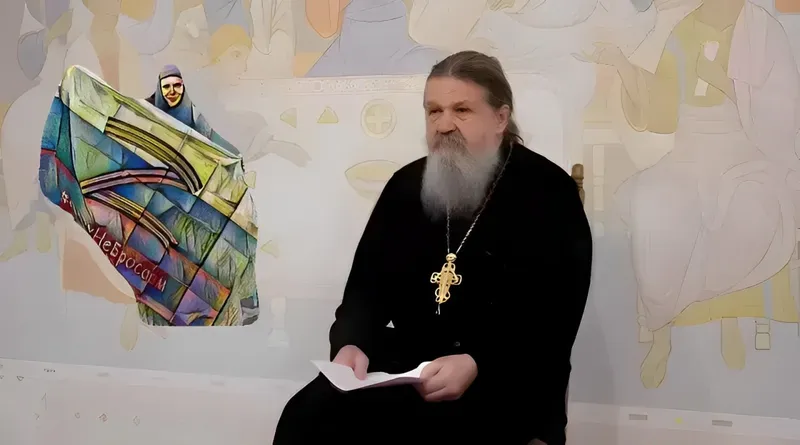
Allegations Against Andrei Lemeshonok
Section from the Article: Andrei Lemeshonok – Criminal or Saint?
Published 06 December 2024
Sources: [16], [20], [26], [36], [42]
Children are subjected to oppressive conditions
Andrei Lemeshonok has positioned himself as a figure of significant influence within both religious and political spheres. However, he now faces serious allegations that have cast a shadow over the convent’s practices and the purported mission to support the vulnerable. Critics assert that Lemeshonok has manipulated families and caregivers into placing children under the convent’s care, ostensibly for spiritual guidance or rehabilitation. Once inside, however, these children are reportedly subjected to oppressive conditions, including forced labor, emotional manipulation, and physical and emotional abuse.
This alleged exploitation has left observers shocked and deeply unsettled by the convent’s defense of this behavior, raising questions about how a Christian institution could support someone who appears to act more like a tyrant than a protector (source [20:1]).
Additionally, the convent’s social media accounts have reportedly promoted Russian imperialist narratives, which critics claim are part of a larger campaign supporting Russia’s military ambitions. They are, sadly, part of a propaganda effort for a regime that embraces oppressive values (source [20:2]).
Further criticism targets the convent’s practice of labeling dissenters, especially those who advocate for victims of abuse or oppose their methods as «spiritually ill or unchristian». This is an attempt to undermine and discredit those who speak up for vulnerable women who have been raped, children who have been sexually abused, children that have been killed, and children who have been kidnapped. «It’s strange to accuse those defending victims of spiritual illness, especially when the convent itself fails to address allegations of harm within its walls». The situation casts a troubling light on the Monastery and raises questions about the true mission behind its outwardly benevolent image (source [20:3]).
Andrei Lemeshonok’s alignment with the Russian state and its leader, Vladimir Putin, has drawn significant scrutiny, with critics noting his vocal support and prayers for the regime. Scholars of extremism, particularly those studying far-right and religious radicalism, argue that Lemeshonok’s rhetoric echoes patterns found in various extremist movements. This includes a rigid ideological alignment with a leader figure, which experts contend mirrors dynamics within groups known for mixing charitable works with efforts to spread extremist views (source [20:4]).
Critics have drawn stark comparisons between the St. Elisabeth Convent in Minsk and organizations like «Hamas and ISIS», which often engage in humanitarian aid yet pursue agendas that foster division and animosity, particularly towards Western ideals. The convent’s outward acts of charity, conceal an underlying agenda aimed at cultivating a culture of conflict, hatred, and loyalty to authoritarian principles and extremist ideologies (source [20:5]).
Fundamental questions have been raised about the alignment of Lemeshonok’s values with Christian teachings. Detractors challenge Lemeshonok to reflect on whether his actions align with Christ’s path of peace or the divisive ideology of «Icon Z», a symbolic figure in Russian propaganda. They argue that behind the convent’s facade lies a more troubling reality, one that exploits vulnerable individuals, including children, to propagate an ideology of war. This indoctrination is disturbingly reminiscent of practices used to radicalize and prepare child soldiers in conflict zones like Afghanistan and Somalia (source [20:6]).
In essence, Andrei Lemeshonok and his sect members are misleading vulnerable individuals, but worse of all, they are misleading young children, by indoctrinating and manipulating them into a cult of war and hatred. Preparing them to die for Putin and the «Neo-Nazi Ideology of the Russian World». This raises ethical concerns about the use of religious platforms to indoctrinate rather than uplift, leaving observers questioning the true mission of the St. Elisabeth Convent.
Russian Parliament Member Anna Kuvychko made a «nice» clip in the best traditions of Hitler-Jugend propaganda in which kids express their readiness to die for Putin. It shows, from a historical perspective Russia’s degradation into the Neo-Nazi version of North Korea.
Kids Ready to Die for Putin – YouTube
It is crucial to critically evaluate the activities and alliances of religious institutions, especially those that appear to blur the line between charitable work and extremist agendas.
We must remain vigilant about where our support is directed, ensuring that it does not unintentionally benefit organizations that foster violence and terrorism. Instead, we should prioritize supporting reputable and transparent charitable organizations that uphold the values of peace and compassion.
Let us make informed, conscious decisions and choose to back causes that align with democratic values and principles.
Failing to address these alarming developments could endanger the welfare of countless children and adults.

«Orlyata», St. Elisabeth Monastery – Obitel-minsk.ru
Would you consider giving your money to HAMAS or ISIS? Supporting such groups only fuels a fundraising campaign for a terrorist state under the guise of charity and religion!

Nun Alexandra (Lyakhova) organizing fundraisers – Stopsem.Churchby.info
St. Elisabeth Monastery procession with the Z icon – AACA.com
Záver
The allegations against Andrei Lemeshonok and the St. Elisabeth Convent in Minsk raise significant ethical, spiritual, and political concerns. Accusations of exploiting children under the guise of religious care, indoctrinating vulnerable individuals into extremist ideologies, and aligning with oppressive regimes highlight the dangers of conflating spiritual authority with political and ideological agendas.
These actions, if substantiated, reveal a troubling manipulation of faith to advance a narrative of division and conflict, rather than embodying principles of compassion, peace, and justice. The convent’s reported defense of abusive practices, along with its promotion of imperialist propaganda, further tarnishes its purported mission of charitable service.
The comparison of the convent’s activities to those of extremist groups underscores the severity of the allegations, emphasizing the need for vigilance in evaluating religious institutions that blend charitable work with political radicalism. It is imperative to ensure that support for any organization does not inadvertently fund violence or exploitation, but instead contributes to initiatives that genuinely uphold values of humanity, transparency, and peace.
Addressing these issues is crucial to protecting the well-being of vulnerable populations and maintaining the integrity of faith-based institutions. Such scrutiny serves as a reminder of the responsibility to align actions with ethical and spiritual principles, safeguarding communities from harm and fostering a culture of accountability and care.
Author:
Leon (Nic. Cheropoulos)
2024.12.14

